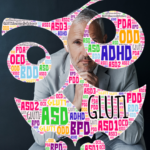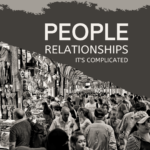GLUT1 SLC2A1 Gene Mutation – Mimicking ASD At 15 years old we finally realized that our child had a mutation on the SLC2A1 gene which resulted in a diagnosis of GLUT1 Deficiency Syndrome (GLUT1 DS). This is another allegedly rare genetic disorder that affects the brain’s ability to get enough energy from glucose, leading to […]
#Lyme #PANS #PANDAS #neuroimmune
Psilocybin
Psilocybin and Mental Health: Navigating Therapeutic and Legal Landscapes Psilocybin, the psychedelic compound in “magic mushrooms,” has garnered attention for its potential in mental health treatment. This naturally occurring substance is being explored for its therapeutic benefits, particularly in areas like treatment-resistant depression, anxiety in terminal illnesses, addiction, and post-traumatic stress disorder (PTSD). Therapeutic Potential […]
Self Soothing, a teachable skill.
HOW TO HELP A CHILD BEGIN TO SELF-SOOTHE Helping a child learn to self-soothe is an important skill for their emotional development. Teach Calming Techniques: Teach the child age-appropriate techniques like taking deep breaths, counting to ten, or using a calming phrase or word. Provide Comfort Objects: A soft toy, a security blanket, or a special […]
People – It’s Complicated
Navigating these complexities can be challenging, especially when we encounter people with vastly different views. However, learning to recognize the fluidity of identity (not gender specifically) can
Keto
Ketogenic Diet Not as easy as just eating meat and eggs, that’s for sure. Done correctly for therapeutic reasons in the case of epilepsy and GLUT1 enzyme deficiency, it requires math! #shudder. What is Keto? Start with the basics. The ketogenic diet is a high-fat, low-carbohydrate, and adequate-protein diet that has been used for decades […]



